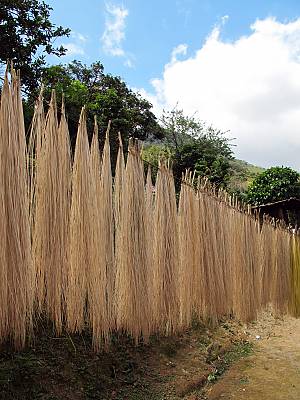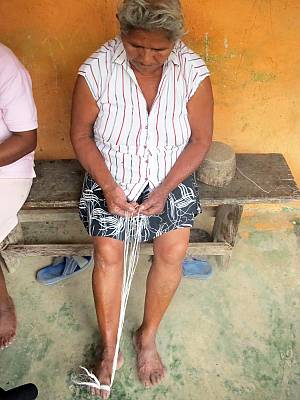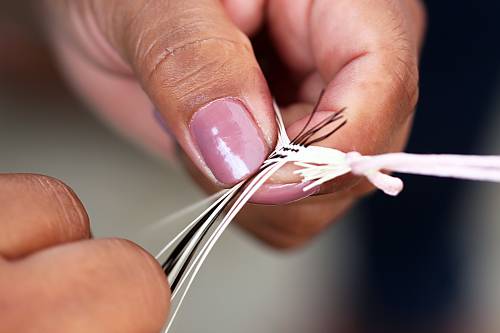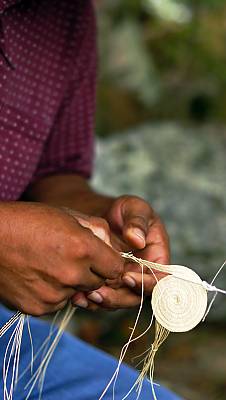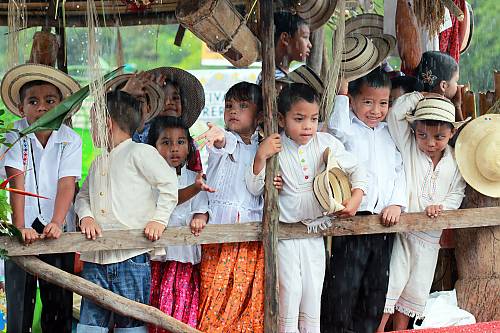Artisanal processes and plant fibers techniques for talcos, crinejas and pintas weaving of the pinta’o hat
Inscribed in 2017 (12.COM) on the Representative List of the Intangible Cultural Heritage of Humanity

The artisanal process of obtaining the plant fibres for weaving talcos, crinejas and pintas used to make pintao hats is a manual process carried out using five plants and swamp mud. Artisans weave braids and create talco weaves with different designs and pintas. Participants either plant, process the raw materials, weave or create the braids used to make the hat. The pintao hat has become an integral part of regional outfits throughout the country worn during traditional dances and community festivities. The practice promotes solidarity as artisans and plant suppliers are encouraged to form cooperatives and groups. As part of efforts to safeguard the craft, the Pintao Hat Museum in the La Pintada District recreates the artisan’s processes and environment and displays hats from different periods. There is a Civic and Memorial Day of the Pintao Hat on 19 October, and the General Directorate of Artisanship holds artisanal markets and fairs to promote artisanal products. The processes and techniques are passed down from generation to generation, and weaving contests encourage artisans to perfect their art. Currently, more than 400 artisans working with the traditional techniques have been identified; artisans make a living from their craft and are proud of their creations.


